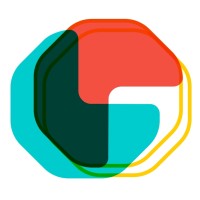The data economy is currently broken. Data is not only controlled by large corporations looking to make a quick buck off your information but is being stripped of its value, with regular breaches raising numerous data privacy concerns. We need a fairer Data Economy, and we need it now!
The emergence of the metaverse and the next iteration of the internet (Web3) means we must take back control of our data before it’s too late. Time is running out for the old ways which built Web2 – new EU laws are tackling the power of ‘gatekeepers’ like Facebook, and even Google is banning the use of third-party cookies from 2024.
Pool Data might be our saving grace in this regard. Founded by journalist and author Shiv Malik, mobile innovator John Hauxwell and crypto technologist Jalil Farid, Pool has a simple mission – to provide tools, payment rails, and markets for a fairer data economy. Pool wants to redistribute data’s power, value, and control to ordinary people by providing the critical infrastructure needed to support data unions.

What do we mean by Data Unions, and How does Pool Support them?
Data unions are one of the key pillars of this new data economy. A data union is an organization that gives people control over their data. It should have a well-governed framework, recognised in law that enables individuals to become sovereign owners of their data. Data unions allow people to share and monetize data, and can take the form of DAOs or other organizations.
These unions enable users to share data with the organization in return for representation. The more data given to a union, the more powerful its data set and, thus, the larger the proceeds. When the data sells, profits are distributed amongst its members.
Data unions, like wallets, have been around for a while as a concept but are now motoring forward, raising millions of funding and opening up membership to hundreds of thousands of people. Notable examples include Ozone, a browser plugin that helps users monetize their web activity, and Unbanx, which helps members make money from their bank data.
Pool supports this movement in several ways. Firstly, it offers infrastructure such as payment rails for existing and new data unions, which enables unions to work together using analytics to scale quickly. Secondly, it provides data unions with a marketplace to sell their data, and lastly, Pool allows users to store data and join data unions through its data wallet named Pocket. Let’s discuss Pocket in more detail.
What is Pocket, and is it the Future of Data Storage?
Pocket is Pool’s digital wallet which will be built on the blockchain. But it’s not any old ERC-20 wallet. It is unique because it enables you to hold, store and do things with your data, all using ethereum sign-on. But this is no mean feat; the data must be well organized, structured, and governed to ensure utility.
Pool works with data unions to ensure they create well-structured data, serve their members fairly and build products buyers and data scientists will want to purchase. Pool will ensure its digital data wallet is easy to use through the seamless syncing of data streams with data union operators. Thus, Pocket will build a collaborative data union ecosystem that will become a critical pillar of the new data economy.
Pocket will revolutionize how we store, use and wield our data, redistributing power and control in the data ecosystem; the wallet is planned for release next year.
What does this mean for the Metaverse?
Pool through their data wallet, Pocket, could be a central part of the metaverse. Their wallet will not only enable you to store your data but will become a core part of your digital identity as we enter this new metaverse reality. Pocket will transform how we use our data in the metaverse in line with core elements of the metaverse, such as decentralization and digital asset ownership.
Similarly, not everyone owns digital assets like NFTs and cryptocurrency, but we do all have our own data; Pool will help reach the mainstream through the monetization and decentralization of this new asset. Like browsers in the early days of Web2, Pocket can be a discovery tool for new users into their data, joining unions and building trust on their terms in the new metaverse world.
Final Thoughts
Overall, Pool is the future of the data economy. The platform provides two fundamental pillars of the new data economy and, by extension, the metaverse: its data wallet Pocket and the infrastructure needed to power data unions. For more information about Pool, make sure to check out their website and follow them on Twitter.
For more market insights, check out our latest Digital Twin news here.













